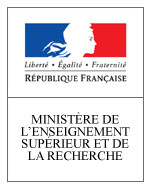Develop a location-based social network sound in a secondary school: the example of AudioBoo
Overview of the experiment
It is about creating a space for storing, describing and sharing sounds collected through an online social networking location-based sound.
Duration:
The duration of the action is brought on school two years (March 2012 - July 2013). the first is dedicated to the development of this social network, the second in its daily management and its development through exchanges with other users.
Objectives:
The primary objective is the creation and apprehension of a platform of social networking by pupils of the fourth line with developments B2i which highlights the understanding of social networks.
Through this approach it, it is to integrate this social network approach in a project related to issues of space and sound. it is presented as an extension of other actions to the extent that its use appears to be a need to consolidate the different sounds online, and to describe the geotag. It can create collaborative relationships between the different class levels involved: from sixth to second al.Students in fourth are responsible for storing online, manage shares and exchanges of sounds picked up by others.
Setting up:
March 2012-July 2012:
The first few months' experience is mainly focused on the apprehension of a social network through the personal experiences of students and a location-based social network sound in particular.
The process involves several steps:- Sharing of representations on social networks and work around the missions proposed by the serious game: Ex Machina 2025
- Presentation of the platform AudioBoo and first taken in hand..
- Creating a site with this cation (reflections on the look of it, its plan of organization)
- Reflections and create an account for the city school (rights of use, logo, account name, management)
- Creating a charter for students and interlocutors
- Creating a simple tutorial to use this platform
- Online as of sounds collected.
Réalizations
Creation of the charter of use (click images to access documents)
This work is based on different realizations of other teachers using social networking in the classroom, including Twitter from the site Eduscol. It has been adapted to specific uses of a social network noise.
Creating tutorial
This approach, although it has not completely ended, allowed to see the different implementations of students: some were content to work on a general presentation of the site and work on it. Others have tried to show her how to put a line, involving the description, tags and geolocation.
Presentation and address of the account DarnetSoundbox
The rigging has allowed the creation of the account name, ie the identity under which the students wanted to appear as a school entity Loading sound was done in two stages: first when the process was a collective, then in a second time, as a working group to bring online the thirty sounds collecteddate
.
First Conclusions
- As part of an education to social networks, this first exercise helped to highlight the distinction between private and public account account or educational use. The realization of the charter clarified the possibilities and limitations of using these tools. The choice of account name and image associated offer the opportunity to reflect on a collective digital identity, related (and returns) again with their own digital identity.
- As part of the analysis of sounds and spaces, the work of online book several conclusions. On the one hand, the exercise aims to verbalize in two different ambient sounds through the description part (structured sentences) and tags (summary of the main tone of the atmosphere in the form of words key), while proposing in this description the necessary spatial and temporal locations. Moreover, students have grasped the edge of the description of the sound without a visual representation. Difficult indeed to describe a sound atmosphere of an airport and then specify its location, without seeing or knowing its name.









